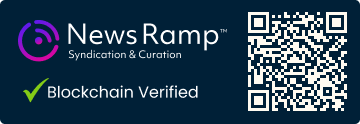By: citybiz
July 22, 2025
Q&A with Alicia Hunt: Navigating Healthcare During a Job Transition
For thousands of Oregonians, losing a job doesn’t just mean a loss of income – it also means losing health insurance. As of 2024, nearly half of the insured population of the state receive health coverage through their job. For many, that creates added pressure to quickly secure new employment or accept expensive short-term options like COBRA.
Alicia Hunt is a Portland-based marketing executive who recently navigated her first independent health insurance transition after leaving her employer-sponsored coverage. During a period of career uncertainty, she enlisted support from post-employment platform When, finding alternatives to COBRA that better fit her budget and needs. Her experience highlights the importance of having trusted guidance when navigating complex healthcare decisions, especially during times of professional transition. Alicia’s story demonstrates how the right support can provide both financial savings and peace of mind during uncertain periods.
You recently had to navigate getting your own health insurance for the first time. Tell us about that experience.
For the first time in my career, I didn’t have employer-subsidized health insurance. I was handed COBRA paperwork during an employment transition, and figured that was the best option. But then I got a call from When, which my former employer offered as a service, and I learned that there were other (better) options. I wasn’t sure what was next in my career, so having someone reach out, walk me through alternatives, and help me make sense of the system was a huge relief.
What was the financial impact of exploring those alternatives?
It was significant! COBRA would have cost me roughly $800 a month, but with the help of When, I was able to cut that cost in half and still stay with Regence Blue Cross to keep my in-network doctors. That financial savings gave me breathing room to focus on the next step in my career instead of rushing into something out of financial pressure.
Why was having that extra time so important?
If I hadn’t connected with When, I would’ve defaulted to COBRA and maybe tried to sort out the marketplace later. I’d budgeted for a few months of high payments, but the savings opened up space to be more intentional. I used that time to start consulting and take on work I’m excited about. One of those opportunities is with a small grant consulting firm, Just Look Left, where I help with grant writing and marketing. It’s meaningful work I might have missed if I’d rushed into something else.
Healthcare can be overwhelming. How did When help with that aspect?
The United States’ healthcare system is so daunting, complicated, and overwhelming. The insurance companies aren’t exactly known for putting people first. Most of my family and friends are still on employer plans or Medicare, so I didn’t really have anyone to talk to about this. The When platform became that knowledgeable, non-judgy voice on the other end of the line, walking me through my options and helping me feel like I wasn’t flying blind.
You had some health challenges last year. How did that affect your insurance decisions?
Yes, I had some unexpected health issues, including an emergency room appendectomy, and a strained meniscus from hiking the Grand Canyon rim-to-rim. It forced me to learn more about the health insurance industry and re-evaluate what I needed for 2025. I reviewed a number of alternative plans and chose the one that would fulfill my specific needs. When you’re on an employer group plan, you’re limited to what’s offered. With the marketplace, there’s a dizzying number of options, but also the chance to find something that fits well.
What gives you confidence about your healthcare coverage now?
Just knowing that there is a personalized resource available is huge. The system feels broken, expensive, and complicated, but I feel like I could still go to When and get objective support. That’s a huge source of comfort. If I need to adjust something or revisit my options, I know I can reach out to When and talk to a real human who understands the context.
Any advice for others facing similar transitions?
Don’t just assume the default option is the best one. Leaving your job is a stressful transition, whether it’s voluntary or not, and you should take the time to explore your options, even if it feels overwhelming. And don’t be afraid to ask for help. Having someone in your corner who can guide you through the process objectively is invaluable. The system is complicated, but you don’t have to navigate it alone.
The post Q&A with Alicia Hunt: Navigating Healthcare During a Job Transition appeared first on citybiz.
This contant was orignally distributed by citybiz. Blockchain Registration, Verification & Enhancement provided by NewsRamp™. The source URL for this press release is Q&A with Alicia Hunt: Navigating Healthcare During a Job Transition.
